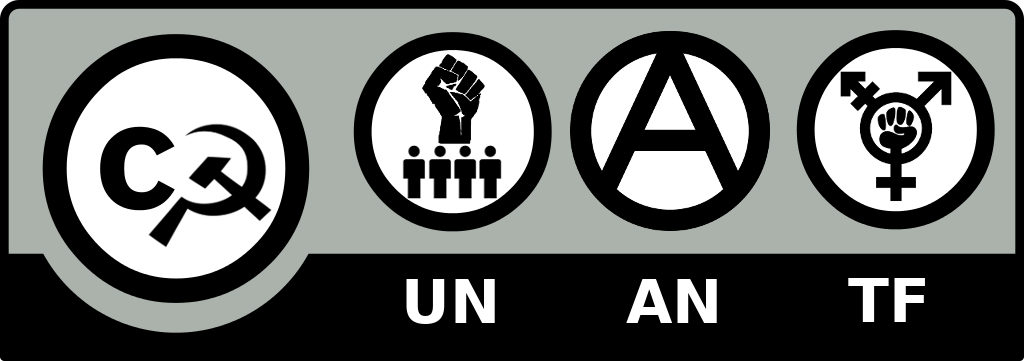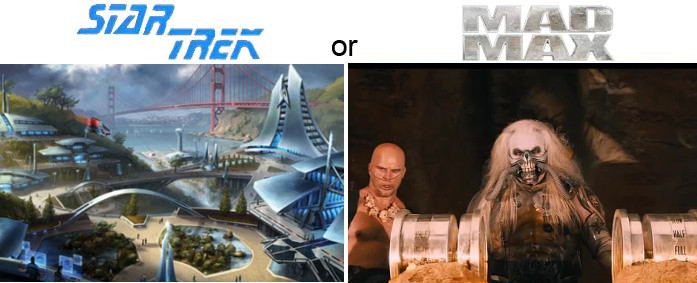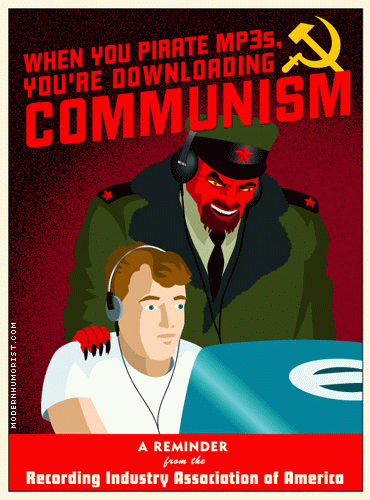Lawrence Lessig is one of the most important figures in shaping the movement for free (libre) technology and media. Since my time as a teenager playing with linux, he and other figures of the FOSS and creative commons movement instilled an image of a better society where everyone can be free of state oppression and freely collaborate. Contributing to the commons according to their ability, and in turn getting what they need. This all culminates into their vision of a new political future of… sensibly regulated capitalism?
It pains me to criticize these heroic figures, but it pains me even more to read the Liberalism in their work. Endorsement of the market place of ideas (“certain fantastic ideas will win in this cultural debate”) and similar sentiments reduce creativity and speech to mere inevitablities of greater economic intensives. His sentiments are far kinder than the status quo, but throughout he defends the interests of those with access from those without. Like many family members I will be seeing this holiday weekend, I just want to shake Lawrence and say “I love you, but please wake up”.

This post and all images are covered by the Creative Communism license. Use anything according to your needs, provided you participate in group solidarity, resist state oppression, and embody trans-inclusive feminism(s).
Larry gets a great deal right in describing the problem, “The law needs to give up the obsession with the copy”. The copyright system is broken. The media industry (and all regulation ties to it) relied on scarcity of materials in production, and we are now post-scarcity in those regards. Trying to put this radically democratizing force back in the box is hopeless. RIAA, MPAA and countless corporate interest have all but given up hunting down individual pirates since Lassig gave this speech. The industry has instead combated online piracy by offering more convenient streaming services, and leveraging state violence to take down informational bottlenecks (i.e, website take-downs for torrent trackers).
These media services, of course, pay creators fractions of the revenue they generate, and use copyright law to place content embargos on alternative services with more fair payments. This results in a privatization of culture driven by exclusivity-rights, totally halting any dream of “free culture and free markets” to which Larry alludes. That is unless they are a “hybrid” platform–in which case paying creators nothing seems to be the primary modus operandi.
This leads us to a pivotal decision both as members of the internet-commons and as educators– are we to saccrifice writing or authorship?
I am pessimisitc that Lessig is right in beleiving having both is a viable option in the long run. As he said, the nature of the technology is to copy, as it is the nature of the persons. Prohibition doesn’t work, but nor will a policy of “drink, but not too much”. I (very fairly and unbiasedly) propose two possible futures of the internet:

“Do not, my friends, become addicted to culture. It will take hold of you and you will resent its absence.”
First we may embrace this post-scarcity with global decentralized access to all information/media. That is, an internet incapable of being censored. In this future there is hope for CC-BY-SA, with content being “signed” cryptographically to ensure the author is known, but beyond that everything is public domain. Out of necessity, we dislodge any notion of (creative) labor as a commodity. As a result, as is the case with meme-images, the vast majority of work is anonymous. Everyone is free to read/write/copy ad infinitum and to *not* read/write/copy things they find objectionable. In this way, a form of radical digital citizenship blossoms in which we prioritize the impact of work over the creation of it. We then pass a universal basic minimum, colonize mars and everyone gets free vegan ice cream forever.

Excuse the wordplay, but the other option is author-itarianism. State and corporate power structures tightly regulate what content is used and distributed online. Larry suggests a minimal form of this is how we save the author. Just fence off a few parts of the commons. Participation in culture may continue to be the privileged pleasure of a bourgeois elite, but at least creative labor is still a way to earn a few thousandths of a penny. Everything on this internet is CONTENT to be traded and hoarded. All art is judged by how it sells to those with wealth, provided it is not too objectionable to the platform curators. TV 2.0 and chill.
With these possible futures in mind, I’m curious what people think about how to move forward. In academia and other creative fields, we rely heavily on attribution of our published works to maintain a reputation and therefore a living. As educators, we encourage writing– within the unclear boundaries of plagiarism (under penalty of death, as Larry noted). How might we advance once these boundaries we rely on dissipate? Is the reform offered by creative commons enough to hold back the tide? is digital communications incompatible with capitalism? Given this uncertainty. what license do we have our students publish under for class assignments?What would post-capitalist copyright look like? Can a license go beyond “free” and instead be inherently liberatory?

More on CC sometimes being less-free (https://stallman.org/articles/online-education.html)




What a great provocation, Jonathan. I appreciate the wordplay and strikethroughs. Where do I sign up for vegan soft serve on tap?
I think a lot about the tension you raise about authorship/authority and free culture. I feel like there’s probably another free to add to “as in beer,” “speech,” and “kittens.” Maybe a free at what/who’s cost analogy? I don’t want to intimate that I’m not a free culture fan, but I do place restrictions on my creative and academic works.
I was at a conference this last week where I met a Creative Commons staffer and asked her if they’d thought about licenses that allow for a change in terms after death (or death + 75 years or whatever Sonny Bono & Mickey Mouse legislate from the ever-after and Disney’s best lobbyists’ imaginations). I asked that because as a librarian/quasi-archivist I have to consider the needs of current creators with those of future historians. Do we privilege the living, whose lives are just a short part of History, or do we worry about The Future? At this same conference I discussed a similar topic with activists who want their tactics to live on, but don’t want their comrades to be at risk. I was like “how about putting your stuff in an archive you trust with an embargo on it?” The thought of non-digital preservation had not occurred to them. Is it possible some of the solutions to digital rights problems are analog?
But getting back to your provocative questions “What would post-capitalist copyright look like?” and “Can a license go beyond ‘free’ and instead be liberatory?”…
You know what? No, I can’t even ideate post-capitalist copyright, but I do want to think more about liberatory copyright–which maybe I’d call fair use? In a library catalog project I’m working on, along with classmate Lauren Kehoe, we’ve changed the “rights” field of our metadata schema to “freedoms and restrictions.” In a way this project is situated in a less-if-not-post-capitalist society, that of zine culture, which is grounded in DIY/anarchopunk values of making, sharing, and mutual aid. I think that zine culture is analogous to the FLOSS movement. It’s like we have these little pockets of freedom-as-in-liberation not freedom-as-in-market, but they’re both under constant threat of cooptation.
Now I’m thinking about the irony of wanting to gate these print and online utopias so no one can mess them up!
Jonathan, I still have to finish the reading but I love your post, esp. “I just want to shake Lawrence and say ‘I love you, but please wake the hell up’.” Lol.